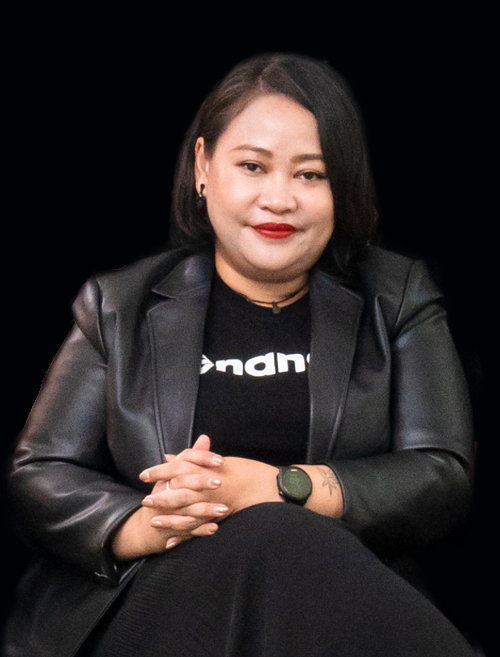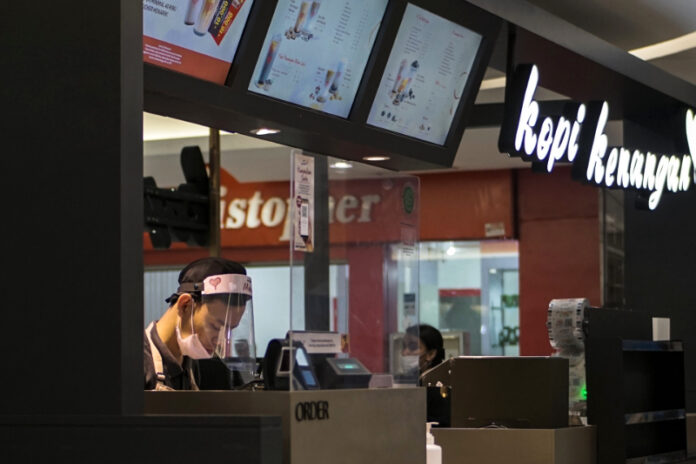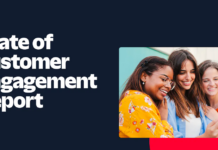For many people, the world runs on coffee, and Indonesian coffee chain Kopi Kenangan intends to keep it that way.
The company, widely recognised as Southeast Asia’s first coffee unicorn, has sold 30 million cups in 2020, and now has over 800 stores across 45 cities in Indonesia.
Despite its success, Kopi Kenangan realised it could upsize the use of its first-party data to keep brewing more innovative offerings.
Frontier Enterprise spoke with Ananditha Mayasari, Head of Marketing at Kopi Kenangan Indonesia, and Srinivas Gattamneni, CEO of integrated growth agency ADA, to sift through the complexities of data management, and trace the origins of an organic marketing campaign.
To begin with, Kopi Kenangan sought to expand beyond its image as a coffee-only establishment.

“We wanted to launch a food and drink bundle through a digital and media campaign called PASAL, or Pasangan Ideal (loosely translated to ‘The Ideal Partner’). The campaign aimed to not only sell the bundle to new customers, but also effectively shift the behaviour of existing customers who were interested only in Kopi Kenangan’s coffee, to those who see coffee and bread as the perfect pairing” said Mayasari.
In order to accomplish this, the coffee chain needed more kick to boost its first-party data, which was limited to existing customers.
“We needed a better understanding of potential customers and their preferences, such as the types of social media platforms they were using and their interests, to develop a more strategic and creative plan that resonates with them and convert them into paying customers,” she continued.
Ripe for the picking
Kopi Kenangan enlisted the help of ADA, leveraging the latter’s proficiency in integrated digital, analytics, and marketing solutions, to transform its marketing vision into reality.
“We worked with Kopi Kenangan in 2022 to help the brand enhance its perception and grow their customer base. Kopi Kenangan shared about their consumer demographics and their expectation of the campaign.” recalled ADA’s Srinivas Gattamneni.
Harnessing its XACT data management platform (DMP), ADA sought to reach as many people as possible, and to convert audiences into new customers for Kopi Kenangan.
“Using XACT, we created personalised marketing assets on platforms such as YouTube and Instagram tailored to different demographics. By analysing which types of content resonated with particular age groups or interests, we optimised Kopi Kenangan’s social media strategy to maximise engagement and drive conversions,” explained the ADA Chief Executive.
Crucial to the marketing strategy was Kopi Kenangan’s first-party data, which contained existing customers’ purchase history and online behaviour.
“We compiled all the available first-party data from Kopi Kenangan, which consists of our app users’ IFA (Identifier for Advertiser), passed it on to ADA, which then extracted the IFA to develop the audience segments and personas,” Kopi Kenangan’s Ananditha Mayasari said.
Meanwhile, Kopi Kenangan harnessed ADA’s consumer attributes from 400 million mobile devices, 175 million of which belong to Indonesia, to complement its first-party data.
“By identifying the different personas of our potential or existing audience, we were then able to pinpoint and personalise the exact behaviour and motivation of each audience segment in consuming our product,” Mayasari added.
This personalised approach facilitated the creation of targeted marketing assets, tailored to each specific audience, which resulted in more effective and on-point communication.
Further, ADA’s XACT platform helped Kopi Kenangan to derive insights on the types of marketing copy that audiences resonated with, and the optimal time to deliver the content for maximum engagement.
“For example, XACT allowed us to create tailored ads for platforms such as YouTube and Instagram tailored to specific personas or segments, such as movie lovers, music enthusiasts, or career-oriented individuals. We learned that the top performing ad content tends to perform better during most people’s break times, which are from 12:00 PM – 2:00 PM and 6:00 PM – 10:00 PM,” Mayasari explained.
Harvesting success

According to ADA’s Srinivas Gattamneni, integrating their XACT platform with Kopi Kenangan was a smooth process, thanks to the coffee chain’s digital maturity.
“The challenge we faced was to pinpoint the precise communication and message after segmenting our audience, as the right message is crucial to the effectiveness of personalisation. To address this, we created a large number of targeted marketing assets tailored to each audience, which made our communication more focused and effective,” he shared.
With the help of machine learning and analytics to analyse and forecast consumer behaviour, Kopi Kenangan and ADA managed to produce the following:
- Campaign deployment on multiple platforms— such as YouTube, Instagram, TikTok, and on display ads.
- 82 different video materials.
- 492 animated banners.
- Over 189 million impressions.
- Increased ad recall lift by 3.9 points, and action intent lift by 1.9 points, which were higher than the industry benchmark.
Planting the seeds
Following the success of the PASAL campaign, Kopi Kenangan is on a mission to satisfy the caffeine fix of its neighbours.
Instrumental to its expansion in other territories is ADA’s XACT platform, which contains 400 million mobile phone user records across 11 markets in South and Southeast Asia.
“We recognise the need to have a deep understanding of consumers in those markets and need insights into the local consumer behaviour, preferences, and trends. This will enable us to tailor our offerings and marketing strategies to meet the unique needs of each market,” said Kopi Kenangan’s Ananditha Mayasari.
Since most of Kopi Kenangan’s first-party data are of existing customers in Indonesia, XACT’s massive pool of data in other countries will allow the coffee chain to better understand local nuances driving consumer behaviour, she added.
Meanwhile, ADA is constantly enhancing its DMP by combining tracking footfall of visitors at particular points of interest, and analysing their online behaviour to segment visitors into loyal customers, switchers, and non-customers based on their app category interests for its clients.
“In the future, we plan to merge our commerce and marketing cloud offerings to provide businesses with a more comprehensive view of their customers’ behaviour and preferences. This integration will enable businesses to create highly personalised and effective marketing campaigns that drive engagement, sales, and customer loyalty. As part of this process, businesses will be able to consolidate their siloed data, including customer data platforms, for a more seamless overview of their customers,” explained ADA’s Srinivas Gattamneni.
The ADA CEO concluded by predicting that in a cookieless future, the data from DMP will become even more valuable, as businesses look for new ways to collect and analyse consumer data in a privacy-compliant manner. XACT’s existing consumer data, said Gattamneni, can be used by businesses to gain a deeper understanding of their customers without relying on third-party cookies or other data sources that may be subjected to regulatory restrictions.
















